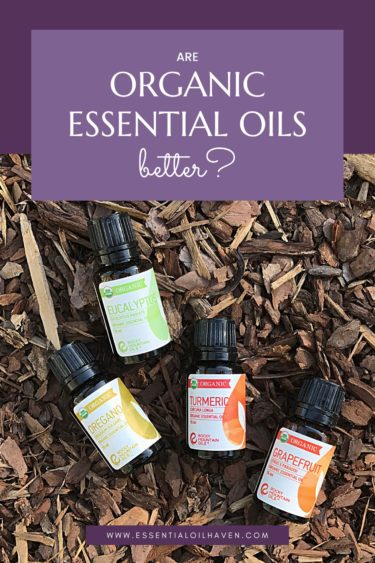
When it comes to essential oils, are organic ones better? Some people believe that organic essential oils must be healthier. But is that really the case? Let’s take a closer look at the differences between organic and non organic oils to find out.
Essential oils are used for their therapeutic properties towards better health and well-being.
This post contains affiliate links, which means if you make a purchase through these links, I may receive a small commission at no extra cost to you. Read my full disclosure policy here.
They are a concentrated liquid produced from plant materials such as leaves, bark, stems, flowers, or grasses.
It is not such a big surprise that essential oils also come in organic varieties. In fact, many products in the market place these days have an organic option. Consumer trends show a favor towards more natural and sustainable product choices.
With organic essential oils, this is a great direction to go because you’re after the oils’ therapeutic properties – which have a good chance to be better when produced from organic plant materials.
Almost all products that are organic tend to demand a bit of a higher price. You might wonder, “Is it really worth the extra expense?”. There are plenty of reasons why organic essentials are a very good choice.
In this article, I explore all of those questions and hope to help you make your own choice between organic vs non organic essential oils.
Organic vs Certified Organic
When it comes to organic products, labeling can be deceptive! In fact, anyone can print the words “organic” on a label.
Even when organic products claim to contain only all-natural ingredients, this is often not true.
Some companies just take advantage of the name association or “organic”. And I would agree, it provides perceived value to their products.
Knowing this labeling dilemma, there are official entities in the United States to step in. The U.S. Department of Agriculture (USDA) has the authority to confirm a product as Certified Organic.
The USDA provides educational materials, programs and services to help farmers and businesses achieve organic certification. Their handbook includes rules & regulations for producing, handling, processing and labeling products. Any product that’s labeled USDA Certified Organic has complied to these standards, including prohibited practices and following a list of allowed and prohibited substances.
Without the USDA stamp and just the name “organic” printed on a label, there’s a possibility that the essential oil has been produced sub-standard. It could be made from sprayed plants, have been distilled poorly, or not properly handled during and after distilling.
Please only trust that your oil is organic when the bottle is stamped and approved with the USDA organic label.
Factors that Make Organic Essential Oils Better
The quality of the essential oil you get depends on a few things. Most importantly, it’s about how the plants are grown and handled. Everything from the seeds, how they grow, when they’re picked, and how the oil is made all play a big role.
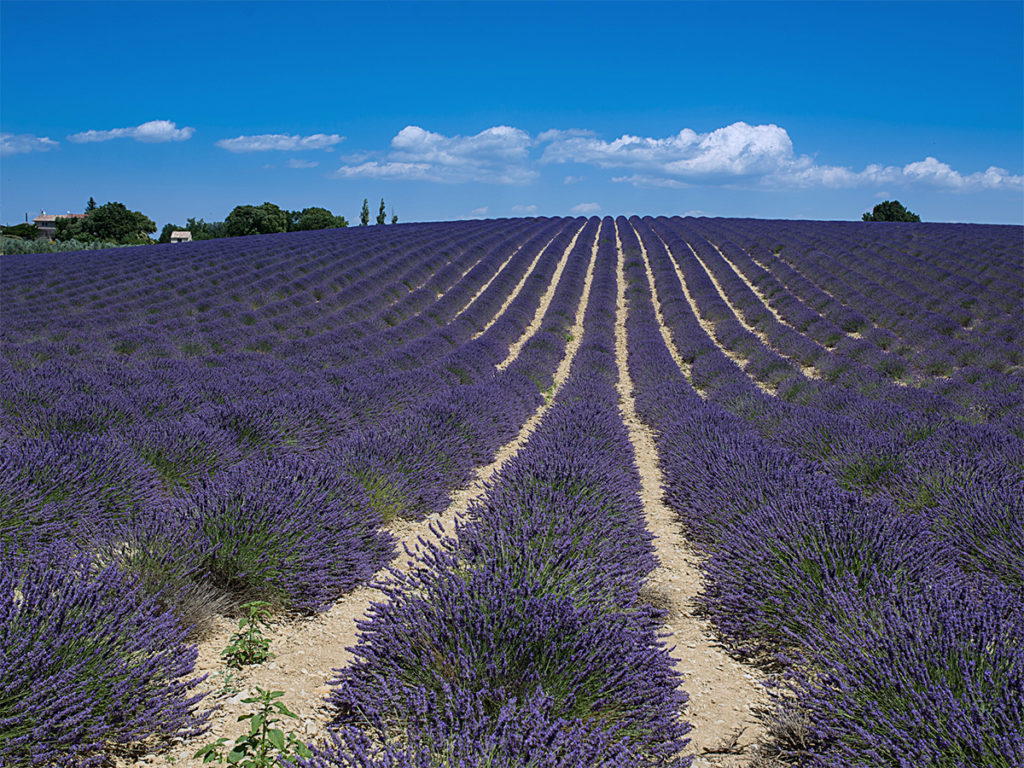
Lavender farm in full bloom
Here is a list of factors that support organic essential oils:
- Purity: Organic essential oils are a more pure product, free from synthetic additives, pesticides, and chemical residues.
- Environmental Sustainability: Organic farming practices promote biodiversity, soil health, and water conservation, which are crucial for the long-term health of ecosystems.
- Health Benefits: Organic essential oils may offer superior therapeutic benefits due to the absence of synthetic chemicals that could potentially interfere with the natural properties of the oil. Pesticides, chemical fertilizers and herbicides are eliminated from the equation right at production level.
- Reduced Risk of Allergies and Sensitivities: Organic production methods typically involve fewer allergenic chemicals, which may reduce the risk of allergic reactions or sensitivities in individuals.
- Ethical Considerations: Organic farming practices often prioritize animal welfare, fair labor practices, and community well-being, aligning with ethical consumer values.
- Traceability and Transparency: Organic certification requires stringent record-keeping and auditing, providing consumers with greater assurance of the product’s origins and quality.
- Support for Sustainable Agriculture: Purchasing organic essential oils supports farmers and producers who adhere to environmentally friendly and sustainable agricultural practicess
- Potential for Higher Quality: Organic farming methods can lead to higher-quality essential oils, since plants grown in healthier ecosystems may produce more potent and aromatic oils.
- Reduced Environmental Impact: Organic farming practices aim to minimize the use of synthetic inputs, which can lead to reduced pollution, soil erosion, and water contamination compared to conventional agriculture.
- Long-Term Soil Health: Organic farming methods focus on building soil fertility through practices like crop rotation, composting, and the use of natural fertilizers, which can contribute to the long-term health and productivity of agricultural land.
As a consumer, please understand that the term ‘organic’ refers to agricultural processes and principles, and doesn’t guarantee that its end-quality is better. Of course, chances are that it is, but this is a point that you should keep in mind when choosing between organic and conventional oils.
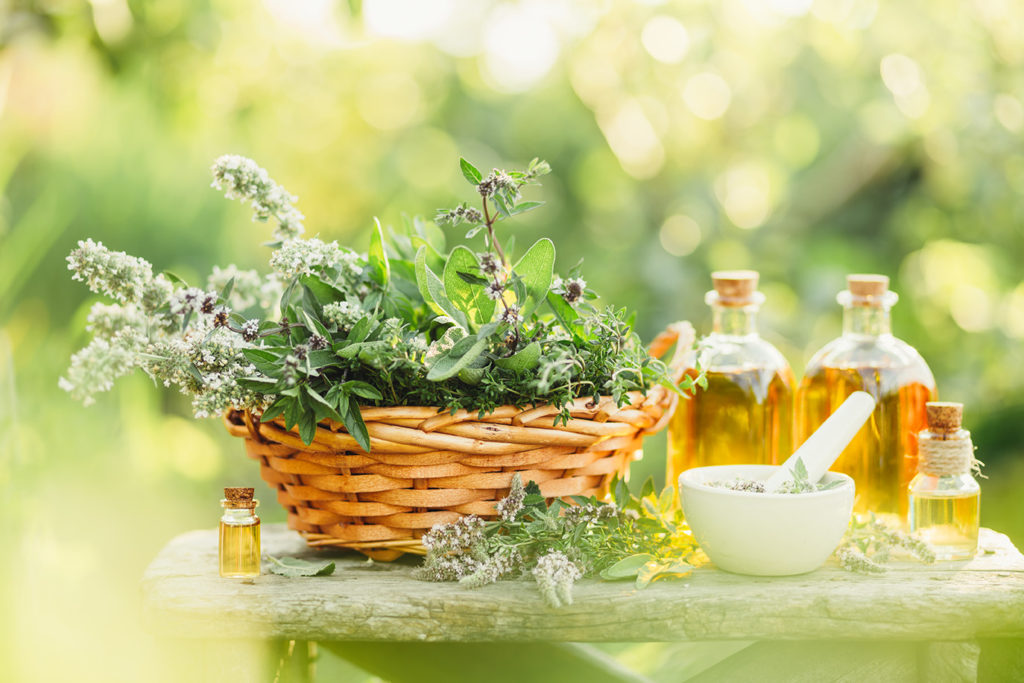
Different medicinal plants from the garden, made into essential oils.
You can further base this comparison on foods that are organic and non-organic. I would argue that organic foods taste much better than non-organic ones. Harsh chemicals used in some farming practices can leave any plants depleted and harmed – whether that’s an apple you eat or Lavender essential oil you use.
Remember, when it comes to the kind of essential oils you choose, research the company’s reputation and look for the USDA Certified Organic seal.
Organic Essential Oils Companies
Nowadays, people really want organic choices when they shop. So, essential oil companies are starting to offer products that are certified organic to meet this demand.
Rocky Mountain USDA Certified Organic Oils
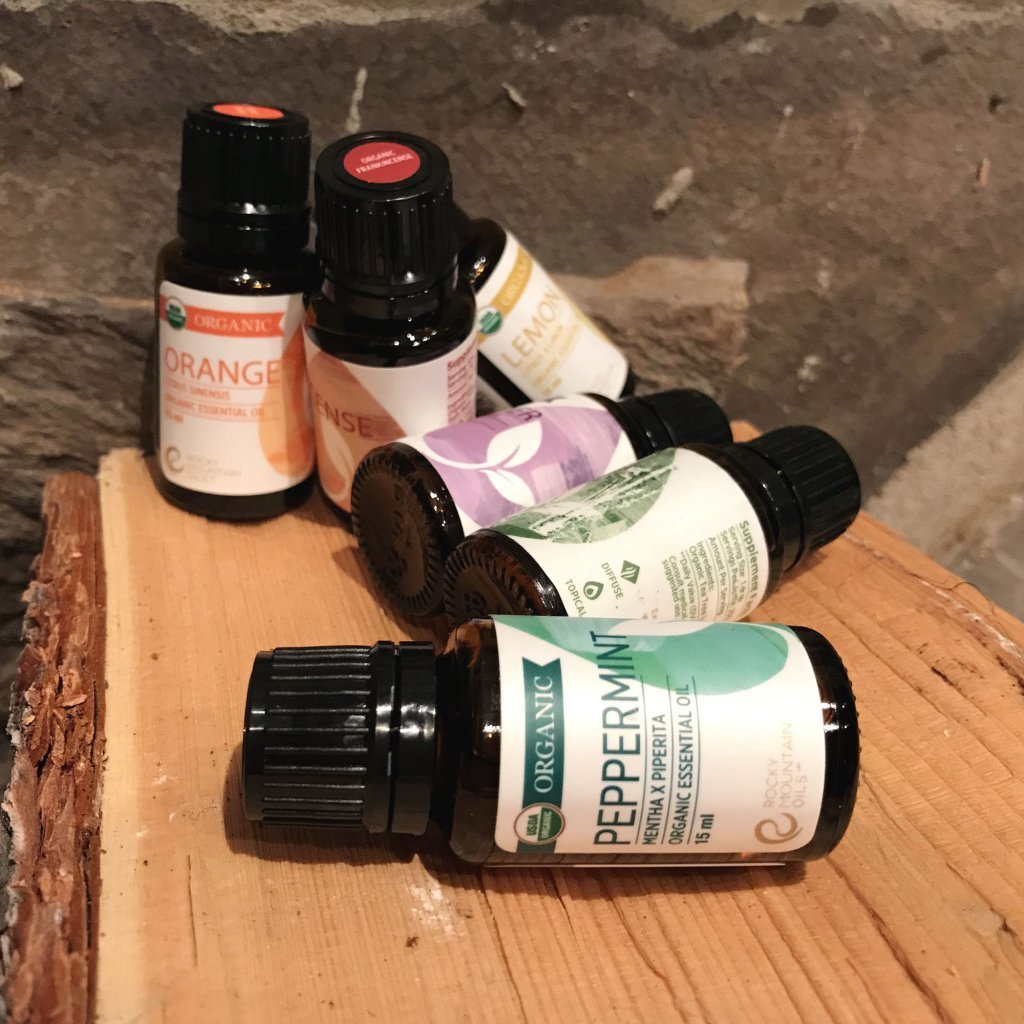
Rocky Mountain Oils offers a Selection of USDA Certified Organic Essential Oils.
Shop Here
Rocky Mountain Oils (RMO) is a reputable essential oils brand that carries a beautiful line of select USDA Certified Organic essential oils.
Their current offer includes 10 oils: Organic Tea Tree, Organic Peppermint, Organic Orange, Organic Lemon, Organic Lavender, Organic Frankincense, Organic Oregano, Organic Eucalyptus, Organic Grapefruit and Organic Turmeric. Kits of 4 or 6 oils are also available at a bundle price (shop the bundles here).
Especially when it comes to essential oils like Lemon, which is made through cold-pressing the lemon rind pieces, I absolutely favor Organic. The lemon rind that made my oil will have a lot less farming by-products than an oil produced from citrus fruit trees that have been sprayed during growth and harvest season.
Plant Therapy USDA Certified Organic Essential Oils
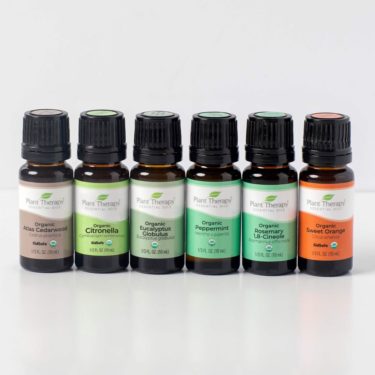
Plant Therapy offers 50 Single USDA Certified Organic Essential Oils. Try them in a Sampler Kit
Shop Here
Plant Therapy is also a popular and well-established essential oil brand that offers USDA Certified Organic essential oils among their product offering.
Currently, their shop offers a whopping 55 Certified Organic essential oils (both singles and blends). You’re sure to find what you’re looking for in an organic variety at Plant Therapy.
From Bergamot to Eucalyptus, Frankincense, Lavender, Helichrysum, Melissa or Petitgrain, the selection is insane (find the 55 oils here)!
REVIVE USDA Certified Organic Essential Oils
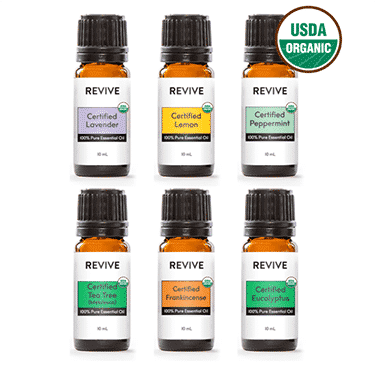
The REVIVE Certified Kit of USDA Organic Essential Oils
Get it Here
REVIVE‘s line-up of USDA Certified Organic essential oils includes a organic kit, as well as the following 10 single oils: Eucalyptus, Frankincense, Lavender, Lemon, Tea Tree, Sweet Orange, Grapefruit, Vetiver, Patchouli and Ylang-Ylang.
Yes, the line-up of organic oils is currently still limited to 10 oils. Still, REVIVE offers fair price for great quality oils.
Why Use Essential Oils and Aromatherapy?
Essential oils smell so good that they can easily change the feel, flair, and comfort level of the surrounding air in your room if used via an essential oil diffuser.
Essential oils can also be applied topically via essential oil massage or spot treatments for example for a headache or sore muscles. You can learn more on how to use essential oils, and which carrier oils to use for specific skin care requirements.
Sources
- USDA Organic Certification Info: https://www.usda.gov/topics/organic
- The best essential oil companies that you should check out.
- Are essential oils edible?
Do you have your own thoughts or favorites to share? Leave us a note in the comment box below!


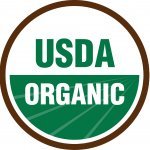

Thank you so much for your great information about using essential oils. I really enjoy reading about them and am trying to learn how to use them properly. Keep your emails coming.
I use Edens Gardens and love them.